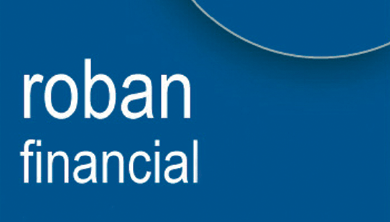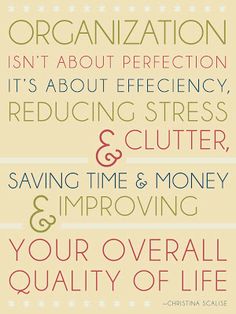Are you organized in your financial life? If so, well done – I would hazard a guess you are one of the few who are! I think it would be fair to say that the majority of us, for many, many reasons including, but not limited to, time pressures and/or the lack of will to tackle the ‘financial project’ , are in fact very unorganised!
Being organised takes time and the want to have a neat, financial life. In truth apart from the worry of actually making money, actually organising ourselves & our financial affairs likely comes low down on our list of priorities.
But it shouldn’t. If we allow ourselves to think about it, our financial affairs are likely one of the main causes of stress in lives. Money worries can be destructive; it can cause havoc with our health and cause enormous strain on our relationships.
Regardless of the money we have – or don’t have, we have to manage our money and feel in control of what we can do with it.
Wouldn’t it be lovely to feel organized and have that peace of mind from knowing that we are in control regardless of what life throws at us? We owe it to ourselves and our families to do all we can, not to allow financial worries affect our lives; if we do all we can to organise our financial lives and eleviate stress by doing so, it has been a very worthwhile project indeed.
How do we go about it?
Firstly, let us look at the problems that may become an issue if we don’t organize ourselves to the best of our ability.
Lack Of Organisation leads to missed investment opportunities and financial penalties for unpaid bills/late credit card payments. Funds that have been accumulated are likely sitting on a cash account with no growth potential. Late bills can incur penalties and/or interest payments accumulating.
By not budgeting and reviewing your financial affairs on a regular basis, you are likely missing the chance to make long term savings/pension savings. Perhaps you can afford more than you think. Perhaps you could pay off the mortgage quicker than you think.
If we break our affairs down to a few simple categories, it might be easier to make a plan to tackle each area and give ourselves that peace of mind we deserve!
Everyday
In our everyday affairs, we should make simple changes to our banking and financial organisation such as:
Budget; simply put we need to ensure we don’t spend more than we earn! Additionally for our own peace of mind, we should budget so that we spend within our means and save what we can for the future. There are many Apps available to assist with this and finding a good one is on my own to do list!
Decluttering; file away all those paper bills. Organise a simple filing system (no matter how technologically friendly you are there will likely be some bills/important financial documents that need to be secured) and file regularly, ideally when you receive them but at least monthly!
If you receive bills electronically, ensure you have email folders for them to be kept for future reference.
Banking; streamline your banking, have two bank accounts – one current account from which all bills are paid and one account which should have an emergency fund and into which a payment is made at regular intervals from your current account. Close any accounts that are no longer needed and surplus to requirements.
Avail of free banking if possible (just be careful to leave the minimum amount in the account for example, if that is the criteria under which you can avail of free banking).
Set up online banking; essential to keep track easily of your Account/(s) and easy to transfer funds if need be to each account, pay bills etc.
Direct Debits; pay all your bills including your credit card bill automatically by direct debit monthly. This way you will not incur penalties/interest charges for late payment.
Tax Relief; avail of all tax reliefs available. There are many tax relief schemes available and the Revenue Website (www.revenue.ie) and Citizens Information websites are valuable sources of information in this regard (www.citizensinformation.ie/en/).
Existing Debts
Once you feel more organised having completed the above, the next area to tackle would be existing debts. If there are short term loans, find out exactly how much is owed, what you are repaying and at what cost.
Is it possible to consolidate these loans? Perhaps one loan with the Credit Union would clear some smaller loans and one payment would streamline the direct debit’s. However always compare carefully the cost of the old versus new arrangement for eg. If consolidating loans within a top up mortgage account for example, the cost in the long run may be higher. A regulated mortgage broker would have to set this out for you in any case to show the differential in the end cost.
Having completed a budget as above, you should be in a position to know if additional payments are possible on any of these loans.
If you have had no issues making the mortgage repayment, perhaps it is worth examining making overpayments to your mortgage account? If you can afford to pay a lump sum payment, you can chose to either reduce the monthly payments or maintain the monthly payments and reduce the mortgage term. Again this should be discussed with the bank.
If you are finding it difficult to keep up the mortgage repayments or indeed any loan repayments, I would recommend that you speak to the lending institution immediately and put in place a plan before it becomes an issue of stress.
It is always worth while to review your mortgage rate, and even taking into account the cost of legal fees, might be worth changing providers.
Finally if you were ever on a tracker rate mortgage, and moved to an alternative rate, check to make sure this was within the banks rights. The Central Bank are currently instructing many banks to reinstate many customers tracker mortgages.
Importantly, last but not least, always maintain a clean credit rating.
The Future
No matter how much you earn, it is crucial to try and put even a small portion away as an emergency fund. Ideally you should have 6 months’ salary put aside in case you are unable to work. Setting up a standing order from your current account into which you are paid into the savings account is a good idea.
If you have children, I would strongly recommend long term savings for their Education. There are a lot of savings options but the most important thing is to get the savings habit going and set up that Savings Plan to give you peace of mind that you will be able to afford to send your children to college when the time comes.
The Unexpected
You’ve organized your financial affairs, completed your budget and taking into account your emergency funding, have surplus funds for future planning.
In that case we would recommend you assess, ideally with the assistance of a financial broker your need for:
Life Cover & Serious Illness Cover; do you have dependants? What will happen to them in the event of your death or serious illness?
Salary Protection; if you out of work due to accident or illness for a period, how would you afford to pay all the bills?
Mortgage Income Protection; if you are out of work due to accident or illness for a period, how would you afford to pay all the mortgage?
Pension; with the state pension age moving to age 68, do you really want to work until you are 68?
Imagine the sense of well being and peace of mind that you would have knowing that the above boxes are all ticked and all eventualities are catered for.
Finally make a Will, and let your Family know where to find it along with all other important documentation.
The above should assist in forming part of your financial organisation project. If you do wish to review any further financial life needs, we would be happy to assist.


